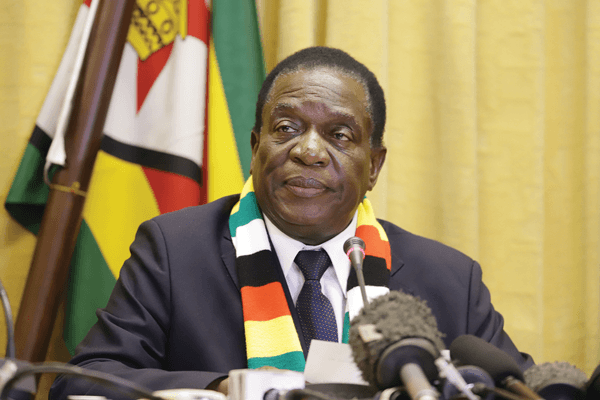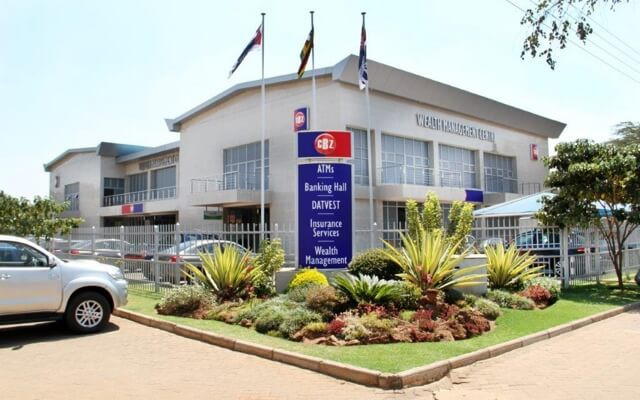
Zimbabwe’s central bank yesterday left its benchmark lending rate unchanged at 35%, citing moderating inflation, as the regulator looked to introduce more local currency and limit the flood of foreign tender.
Zimbabwe is in the grips of its worst economic crisis in a decade, with prices of basic goods soaring and shortages of medicines, fuel and electricity, diminishing hopes of a quick recovery under President Emmerson Mnangagwa.
The crisis has rekindled protests against the government, with public servants in January threatening to down tools over wages, while broader impatience with the deepening poverty upsetting the fragile calm since the 2017 coup that toppled long-time ruler Robert Mugabe.
Government last year suspended publication of annual inflation data, but economic analysts say the figure reached 525% in December.
Reserve Bank governor John Mangudya said he saw annual price-growth dipping below 50% by year-end. Monthly inflation fell sharply in January to 2,23% “Our task is we stabilise inflation and stabilise the exchange rate. We expect month-on-month inflation will continue to come down until the end of the year,” Mangudya said.
“Most of the inflation is caused by non-monetary factors. That is expectations – that ‘I lost money in 2008’ (to hyperinflation). This is a once beaten twice shy scenario. These are things that shape inflation in Zimbabwe,” Mangudya said.
Inflation rate fell sharply to 2,23% month-on-month in January, from 16,55% the previous month, driven down by smaller increases in the price of food and non-alcoholic drinks, according to statistics agency ZimStat at the weekend.
Zimbabwe will resume publishing year-on-year inflation data in March after suspending it last year.
- Chamisa under fire over US$120K donation
- Mavhunga puts DeMbare into Chibuku quarterfinals
- Pension funds bet on Cabora Bassa oilfields
- Councils defy govt fire tender directive
Keep Reading
The central bank governor said he still saw economic growth at 3% in 2020, and that the bank planned to introduce more local dollars into circulation to stabilise foreign exchange markets that for years have relied on dollars and the South African rand.
The country abandoned its currency after inflation peaking at 500 billion percent in 2008 wiped out pensions, savings and any vestiges of confidence in the local currency.
Mangudya also said the bank would use Treasury Bills, savings bonds, corporate bonds to distribute 50% of $34,5 billion bank deposits which he said were being held by 200 entities.
“We can have a cup of tea with them and give them corporate bonds and take the money from them. We need to talk to them on a gradual basis,” Mangudya said.
He said free funds made up of diaspora remittances, funds held by international organisations, embassies, non-governmental organisations and donations were “safe and secure”.
“The same is true for all other foreign currency accounts and other current export retentions are being maintained at current levels. The bank has no appetite to tamper with the legal status of the public’s foreign currency accounts,” he said.
Mangudya said $1,1 billion of coins and notes representing 3,2 % of total deposits were in circulation as of December 31, 2019, adding that the apex bank would continue to increase cash up to 10% of deposits. He said the bank would gradually introduce notes in larger denominations to improve efficiency and convenience to the transacting public.
The RBZ boss said he was encouraged by the de-dollarisation process that is taking place in the country as signalled by the decline of foreign currency deposits as well as the increase of local currency transactions.
“The use of the local currency for transacting purposes has also continued to go up, reaching a total of $459,6 billion from 189 million transactions for the full year 2019. These measurements of the proportion of the use of the local currency in the economy show that the country is on a right trajectory to de-dollarisation,” he said.
Cabs managing director Simon Hammond said the policy announcement of reinforcing safety of free funds was commendable.
— Business Reporter/Reuters











